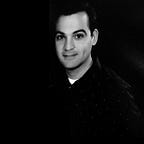A SPIDER-MAN MOVIE THAT ALLOWS PETER PARKER TO BE A HIGH-SCHOOLER
***SPOILERS***
Spider-Man: Far From Home is what we have come to expect from the MCU. It is a movie full of funny one-liners, a not-too obvious plot, and a relatable main character. Here, the MCU excels at what it does best: capturing, what are often, unrealistic and fantastical comic book stories and repackaging them into modern and digestible cinematic experiences. But what the MCU has done for Peter Parker is what shines in Far From Home. Peter Parker is a teenager who is caught up in something bigger than himself. This plot point is meticulously thought-out and explored in Far From Home.
While Spider-Man FFH is ultimately a chapter in the greater MCU continuum it carves out a special spot because it continues to yearn for the hyper-local, hyper-aware super-hero. Peter is tired of being a celebrity. He wants to focus on his school and social life. He yearns to be a high-schooler with summer flings and annoying teachers, and not the galaxy crossing hero that saves the galaxy. In one of the most telling signs, repeated numerous times throughout the movie, Peter grumbles, “I’m just your friendly neighborhood Spider-Man.” He is reminded, by an extremely hilarious Samuel L. Jackson, he can no longer claim that hyper-local mantle. That said, Peter sure tries.
Parker leaves behind his Spider-Man suit, only to find that his Aunt May has packed it for him, as he sets off in a cross-European class trip in which he plans to declare his love for MJ. That’s all he wants. When he is confronted by Fury, he tells him that he can’t help because for Spider-Man to appear in Europe at the same time as Peter himself is there with his class would reveal his identity. Fury takes care of the problem but not without Peter trying repeatedly avoid participation in Fury’s plans.
This, in fact, becomes Peter’s greatest weakness in the story. He is so desperate to be a normal kid, that his antagonist exploits this desire leaving in a world of trouble much of his own creation.
Marvel creates a fictional character which stays true to the spirit of adolescence with its rebellious desire to skirt responsibility. Peter ignores (ghosts) Nick Fury and repeatedly refuses him. He runs off from important meetings to get back to his class and to fulfill what is arguably more important for him, than some Earth shattering crises, his plan for winning the heart of the girl he loves. Marvel, John Watts, and the cast do an incredible job of grounding Peter Parker first as a teenager and then as a super-hero. This makes the movie that much stronger and enjoyable.
The fulcrum of the movie turns on how Peter sees his folly. He can’t escape Spider-Man any more than a regular teen can escape chores, grades, and tests. The fact is that, as he grows up Peter will face what everyone eventually faces–the loss of childhood innocence and the endless responsibility of adulthood. This coming of age theme, powerful when done correctly, allows Far From Home to captures Peter Parker succeed as a believable and relatable teen.
